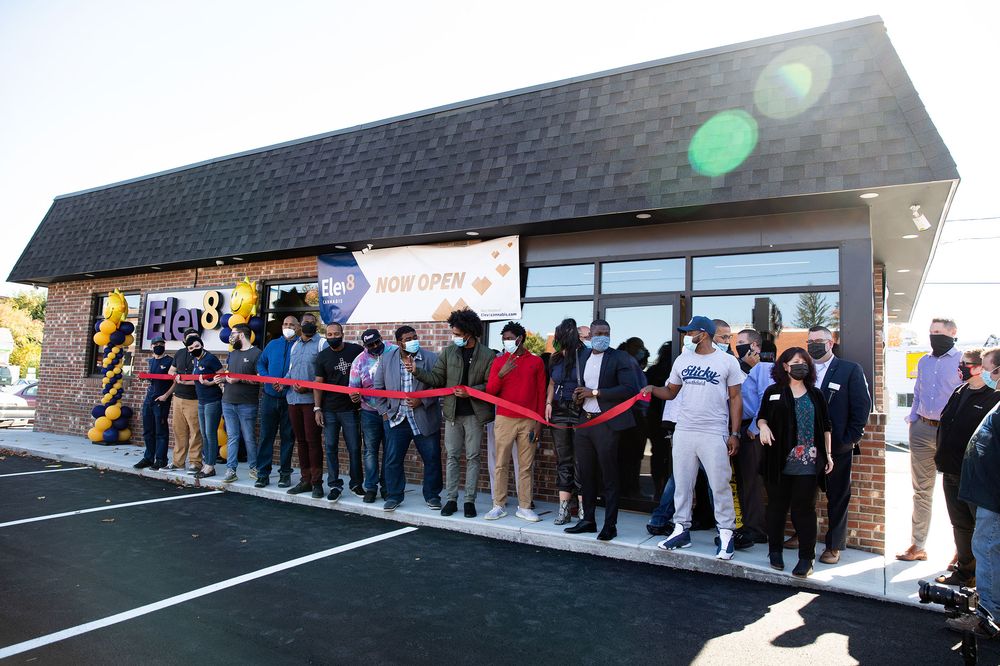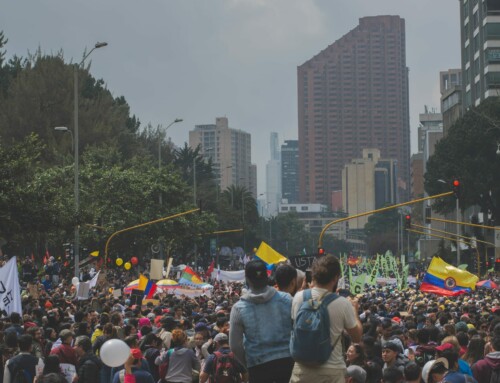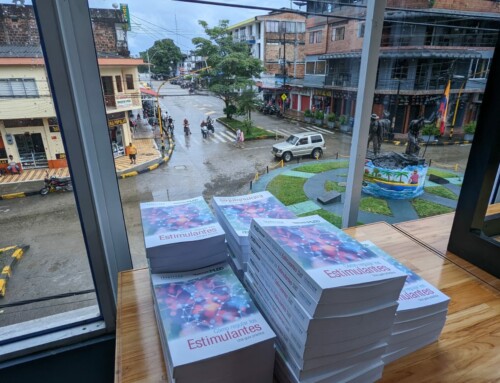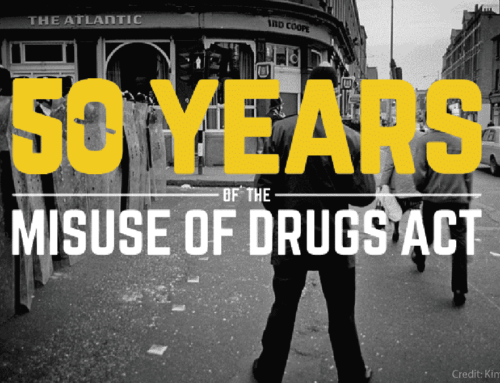As the US saw four more states legalise recreational cannabis (bringing the total to 15) we caught up with Seun Adedeji, CEO of Elev8 Cannabis to tell us his story and why he believes that social equity* needs to be the heart of cannabis legalisation. The views expressed in this blog are those of the interviewee.
*Social equity is the principle that each member of society has a right to be given fair, just, and equitable treatment by the political system in terms of public policies and services.
Story
My name is Seun, I’m the CEO of Elev8 cannabis. I migrated to the US at the age of five and I moved to Chicago, Illinois. We didn’t have a very holistic home, my stepmother was verbally and physically abusive so I had the mentality where I had to go out and hustle, fend for myself and basically make my own way. I’ve always got in trouble, at an early age I was the kid with the duffle bag selling candies to kids in school and then in middle school I upgraded to selling cannabis. At the age of 13 I got arrested for cannabis possession.
I’ve seen a lot of friends get arrested and I saw the implications of what a record could do – it terrified me
This had a major impact on me at the time. It was a real shock realising that I could be deported from the US back to Africa, I’m used to American culture, it’s my home now and I didn’t think I would fit in back home. I did have a lot of thoughts like my life is over, I’ve seen a lot of friends get arrested and I saw the implications of what a record could do – it terrified me.
I was young and dumb. I wanted to dress like everyone else, look cool and I did what I could to obtain it.
Getting arrested had pros and cons. At the time I didn’t see how I’d get over it, it was devastating, but at 18 my record got dropped and it hasn’t impacted me as an adult – it sucked, but I didn’t let it hold me back or cripple me, I’ve always had a strong drive and a hunger to achieve more and be successful.
Legal cannabis industry
Then I moved to Washington State, this is when the cannabis entrepreneurship side of me really started kicking in – once I started to look into cannabis legalisation which was starting to happen in the state. I saw this huge opportunity within the cannabis industry to create operational wealth, not just for myself but also for other people who looked just like me. So I started doing more research, really looking at the laws, the pros and cons and learning how to get involved in the cannabis industry which I saw as an emerging market.
How does a Black man who came from poverty obtain this and build a business in this new emerging industry where they’ve been affected
What I very quickly learned is that it’s a very capital intensive industry to be involved in. When you start to really look at it – how does a Black man who came from poverty obtain this and build a business in this new emerging industry where they’ve been affected, where their family and friends have been impacted by the war on drugs, because at the end of the day it’s all about capital. Money talks, b*******t walks. We just happen to call a spade what it is.
So I started doing more research and I reached the conclusion that it takes about 2 million dollars to set up shop. I didn’t have that, but I did have hustle and determination. So I started looking at emerging markets, I saw Oregon, a more saturated market but where there were opportunities. I knew what I needed was experience, so I leveraged the law in Oregon and I built up my first location in Eugene. I got rejected for my license the first two years.
I used to tell people I was a COE – chief of everything. I used to do everything, you name it I did it. And the reason why I did it was because I didn’t want some white corporation to come in and use me as a puppet, I needed to be able to get the information to my people – and the people that really need it, people who are truly hustlers just like me, not just based on race. I just wanted to help people who were really hungry but who didn’t have resources. I needed to show them this is possible, I didn’t come from anything, I didn’t have any money, no rich friends, no rich family, I wanted to be a beacon of hope for my community.
I want to show people it’s possible. That’s why I give free information – because I want more people to win. The people who really deserve it, I want to give them hope, the people like me who’ve come from nothing
Yes they screwed us, yes they f****d us, (excuse my language) yes the economic devastation is great, yes we come from broken homes but if we put our minds together and we’re determined that this is the path that we want to go to, I want to show people it’s possible. That’s why I give free information – because I want more people to win. The people who really deserve it, I want to give them hope, the people like me who’ve come from nothing, I want to hope. I’ve made sacrifices, I slept on my office floor for over a year while I built it all up and now we’re a multi-million dollar corporation. We’ve won three licenses in Massachusetts, we’ve managed to raise more capital and expand.
Drug war
The war on drugs has had a huge negative impact for the Black community, I think that cannabis should be legalised.
In the Black community African Americans are four times more likely to get arrested for cannabis possession. Policing and sentencing is far more harsh for African Americans.
When you get arrested, you go to prison, you now have a criminal record, you can’t get a job – it’s a cycle. There are so many limitations, time in particular. Time is so valuable. The time that you miss, Christmas and other holiday’s away from your family, your friends.
All those people should be released from jail, I think their criminal records should be wiped out. In fact, I think they should be paid a fee for the headache and the hardship they’ve been through.
I’ve been to jail before – being confined in a little small cubicle, it does something to your mental health, especially when you know you’re being arrested and put in prison for the exact same thing that white people are making billions and billions of dollars from, whilst Black people fill our jails. I don’t see justice in that at all.
All those people should be released from jail, I think their criminal records should be wiped out. In fact, I think they should be paid a fee for the headache and the hardship they’ve been through.
Social equity
I don’t think any state has got social equity right. I think that Massachusetts has put up a good fight. Recently, Massachusetts has come out with limited licenses just for social equity and economic empowerment applicants. So, what this looks like is they’re giving out licenses to African American POC (People of Colour), social equity economic groups that qualify. They set aside a license type for those people and in the first three years they’re the only people that will qualify.
The other thing I think that Massachusetts has done that is masterful is that they took the Washington State implication of license per corporation. This caps the number of licenses that any corporation can have to three retail outlets. What this does is it gives opportunities to small mom and pop businesses to actually have the advantage to get their business off the ground. I think that Massachusetts on a master level did that well.
But there are two things that I think that they could do better.
First they need to remove real estate as a criteria of entry – when you look at all the states across the US that have some kind of cannabis legalisation, before you can apply for a cannabis license you need real estate. Now the bad part about that is that you have zoning buffers. So, for example, you have to be 1,500 square foot from a K-12 (a school from kindergarten to 12th grade) and you have to be 1,000 square foot from another existing dispensary. Now the cities determine where the zoning of where a cannabis business can be, so it’s limiting your property options, so now you’re zoned in C and you can only put your dispensary in zone C. Then there are landlords who start to understand this limitation, and so they put a cap on the total amount of licenses that can be obtained and that is another limitation. So we now have limitations on licenses and zoning. So then property acquisition starts decreasing and what we then see, as we’re seeing in Boston, is that the average lease has gone from 50,000 to 150,000 USD per month. And people are paying this amount in the hope of getting a license – and you winning a license is not guaranteed!
Take me for example, I applied for my license back in 2017 and I‘ve just opened my first dispensary in 2020. That’s three years! Imagine your average African American spending 100k dollars for three years in the hope that they might get a license, that becomes very capital intensive.
So I think the second thing that they can do, and I think that Massachusetts has been really pushing for this, is that a percentage of revenue from the tax industry should go into a revolving loan for minority owned businesses to get their business off the ground. These are people who have been impacted by the drug war.
The cannabis industry is booming, in Illinois some stores are making a million dollars in a month some stores are taking a million dollars a day. So I don’t think there’s anything wrong with taking a percentage of these revenues and allocating them into helping minority communities get off the ground.
Final word
I’m stubborn, I’m determined to overcome whatever rules and regulations are put in front of me, I think that for me action is better than procrastination. I think as a community we need to come together.
We need to make sure that we’re at the table as they’re writing these laws to ensure our needs are heard and incorporated into policy.
We’re not always going to get laws that are favourable to us but we need to make sure we don’t just take someone else’s word and make it definitive. We need to do our own due diligence, we have to understand the law ourselves. What we need to do is have our voices heard whilst these laws are being written. Most importantly, we need to make sure that we’re at the table as they’re writing these laws to ensure our needs are heard and incorporated into policy.






Leave A Comment